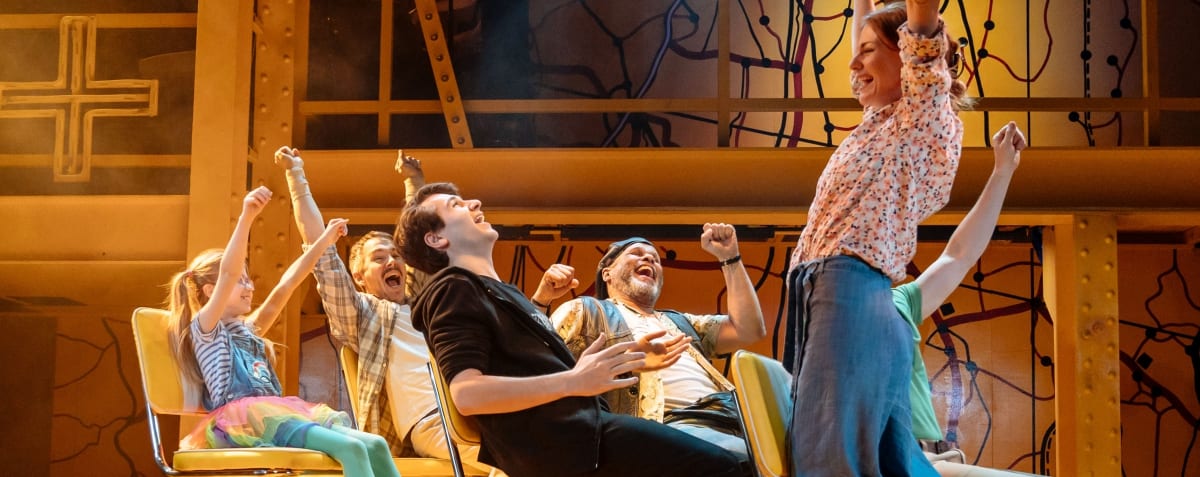Little Miss Sunshine, for a show that addresses a lot of pressing contemporary issues, retains its feel-good family factor. Unlike what the title may suggest, this show does not attempt to gloss over the realities of life with a sunny disposition; for a narrative that is centred on attending a beauty pageant it covers some serious areas: suicide attempts, drug abuse, eating disorders, bullying, and bankruptcy just to name a few. This does, however, complicate the performance; it’s hard to decipher what the main purpose of Little Miss Sunshine is and, due to its heavy content, the musical numbers tend to pale into insignificance.
Little Miss Sunshine tells the story of the Hoover family who, against all the odds, push a VW campervan all the way from New Mexico to California! In an attempt to get their daughter Olive to a beauty pageant final, the whole family tag along … and it wouldn’t be a real family road trip without numerous arguments and squabbles. For the Hoovers, however, these aren’t just petty sibling rivalries enacted in the back seat – these arguments are life changing, hard-hitting and, at times, truly shocking.

The cast, for the most part, are fantastic. When all of the family perform together the show comes into its own. Each individual character is unique and allows for the dynamics of family life to play out right before you. The mother (Laura Pitt-Pulford) is particularly outstanding – she absolutely nails her characterisation with added detailed nuances that capture Sheryl perfectly. This, alongside her stunning vocals, delivers a truly emotive performance. Olive (Sophie Hartley Booth) similarly deserves a special mention – her high energy performance, beautiful voice and confident command of the role is unbelievable – more like Little Miss Superstar than Sunshine! Whilst every member is very capable, the strength of these two performers exposes some of the weaker elements of others. The character of Frank (Paul Keating) is loaded with so many challenging narratives that it becomes impossible to convincingly portray his multifaceted character and, it is for this reason, that Keating lacks some of the consistency needed to achieve a compelling characterisation.
It is difficult to ascertain the true identity and audience of Little Miss Sunshine. As a musical, which it is on paper, it doesn’t excel – the numbers, other than that of the Grandpa (Gary Wilmot), are not memorable and the high word density sometimes causes their meaning to get completely lost. As family entertainment, it presents the issue of age appropriate content. Laced with expletives and controversial topics it would be up to the individual to determine whether it is suitable. Despite this, I personally enjoyed it, solely for its entertainment value – it’s really very funny. I found it hilarious and emotional in equal measure and yet, despite this, it feels as though something is missing. This has the makings of an outstanding show and, with a few tweaks, it could be excellent. It suffers from the common issues of overdoing certain jokes, a rather prolonged opening and being over ambitious with its content; it addresses too much to do it all justice which, unfortunately, is an issue that cannot be salvaged by its highly talented cast and expertly crafted and hilarious script.
The staging proves that simplicity is the key to success. Dominated by yellow and with a funky map pattern painted across the floor and walls the journey is very cleverly documented. The use of the campervan is smooth and effective which, coupled with the choreography, manages to capture the driving process in a very innovative manner. Overall, I would recommend seeing this show as it does, above all else, offer an evening of expertly executed entertainment and its ability to capture the reality of family will have you fondly comparing it to your own lovable (if not a little less than perfect) one.


